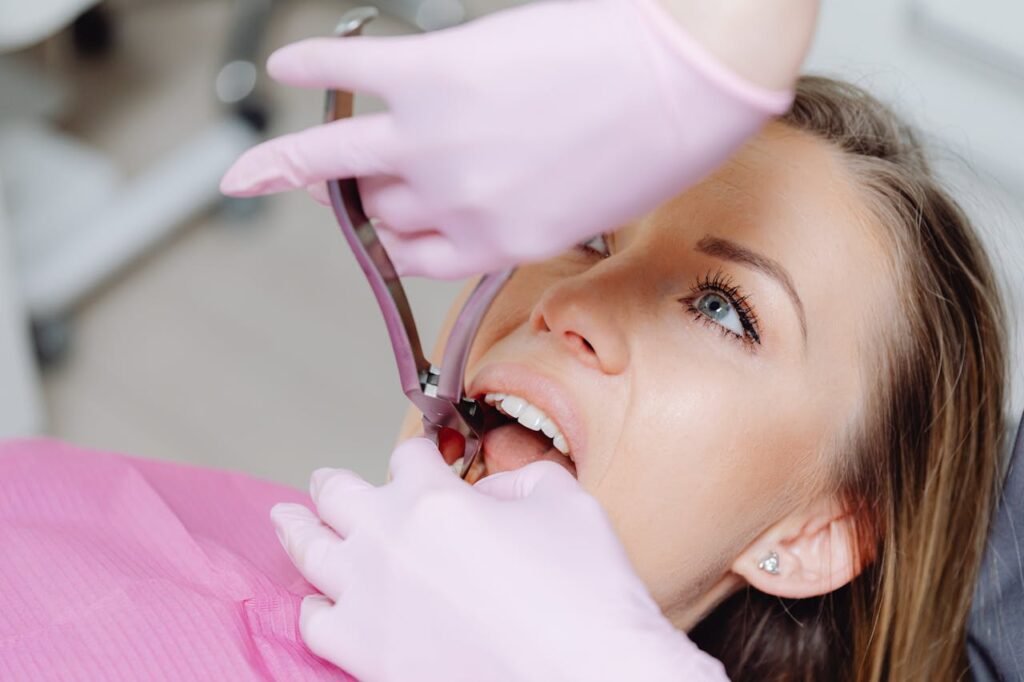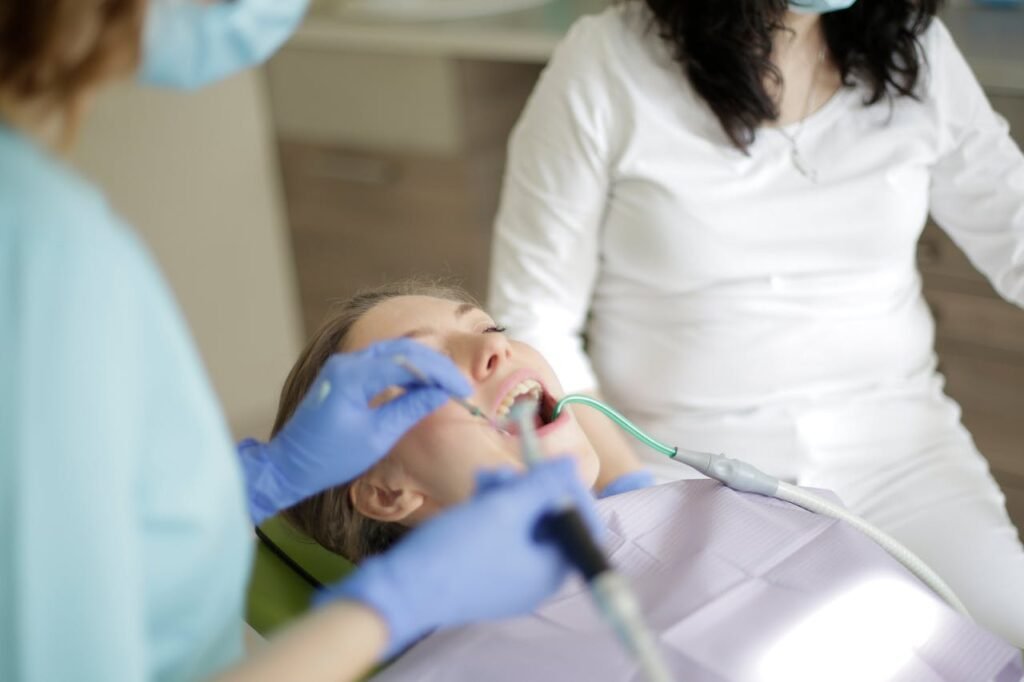What Dentists Don’t Want You to Know, I Want to Make My Teeth White
A bright, white smile is often associated with good health, confidence, and attractiveness. However, many people struggle with stained or yellow teeth due to various reasons such as diet, lifestyle habits, and aging. If you’re wondering, “I want to make my teeth white,” this comprehensive guide will help you explore various teeth whitening methods, from natural remedies to professional treatments. if you are the professional who works for Contract jobs or any fulltime jobs and not have any time for the dentist appointment you can try these tricks to recover or make your teeth white.
Key Takeaways
- Maintaining good oral hygiene is crucial for keeping teeth white and healthy.
- Natural remedies like baking soda, hydrogen peroxide, and activated charcoal can help whiten teeth.
- Professional treatments offer faster and more effective results but can be costly.
- Avoiding foods and beverages that stain teeth can help maintain a bright smile.
- Over-the-counter whitening products are a budget-friendly alternative to professional whitening.

Understanding Teeth Discoloration
Teeth discoloration occurs due to intrinsic and extrinsic factors. Intrinsic stains are caused by aging, genetics, or excessive fluoride exposure, whereas extrinsic stains result from consuming coffee, tea, red wine, and tobacco use. Understanding the type of discoloration is the first step in choosing the best whitening method.
Top 10 Tricks to Whiten Your Teeth along with their descriptions:
| I want to make my teeth white Tricks | Description |
|---|---|
| 1. Baking Soda & Hydrogen Peroxide | A natural whitening paste that removes surface stains and kills bacteria. Mix and brush gently. |
| 2. Oil Pulling | Swishing coconut or sesame oil in your mouth for 15-20 minutes helps remove toxins and plaque, leading to whiter teeth. |
| 3. Activated Charcoal | Absorbs stains and toxins from teeth, but should be used sparingly to avoid enamel damage. |
| 4. Apple Cider Vinegar Rinse | A diluted ACV rinse can naturally lighten stains, but overuse may erode enamel. |
| 5. Whitening Toothpaste | Special toothpaste containing mild abrasives and bleaching agents can gradually remove stains. |
| 6. Professional Whitening Treatment | In-office bleaching or laser whitening provides the fastest and most effective results. |
| 7. Whitening Strips | Easy-to-use strips coated with peroxide help lift stains in a few days to weeks. |
| 8. Avoid Staining Foods & Drinks | Coffee, tea, red wine, and colored sodas stain teeth—using a straw or rinsing after consumption helps. |
| 9. Regular Brushing & Flossing | Keeping teeth clean prevents plaque buildup, which can lead to discoloration over time. |
| 10. Eating Crunchy Fruits & Vegetables | Apples, carrots, and celery act as natural abrasives that scrub away stains while promoting saliva production. |
Would you like me to add more details or customize it further?
Natural Remedies for Teeth Whitening
Many natural ingredients can help whiten teeth effectively. Here are some popular options:
1. Baking Soda and Hydrogen Peroxide
Baking soda acts as a mild abrasive that removes surface stains, while hydrogen peroxide serves as a natural bleaching agent. How to use:
- Mix 1 teaspoon of baking soda with 2 teaspoons of hydrogen peroxide.
- Brush your teeth gently with this paste for 1–2 minutes.
- Rinse your mouth thoroughly with water.
2. Oil Pulling
Oil pulling is an ancient Ayurvedic practice that involves swishing oil in the mouth to remove toxins and bacteria that cause discoloration. How to use:
- Use coconut or sesame oil.
- Swish a tablespoon of oil in your mouth for 15–20 minutes.
- Spit it out and rinse with warm water.
3. Activated Charcoal
Activated charcoal absorbs toxins and stains from the surface of teeth. How to use:
- Wet your toothbrush and dip it into activated charcoal powder.
- Brush gently for 2 minutes.
- Rinse thoroughly to remove residue.
4. Apple Cider Vinegar
Apple cider vinegar has natural bleaching properties but should be used with caution as it can erode enamel. How to use:
- Dilute apple cider vinegar with water in a 1:2 ratio.
- Swish it around in your mouth for 30 seconds.
- Rinse thoroughly with water.
5. Strawberries and Baking Soda
Strawberries contain malic acid, which helps remove stains. How to use:
- Mash one strawberry and mix it with ½ teaspoon of baking soda.
- Apply the mixture to your teeth and leave it for 5 minutes.
- Rinse and brush as usual.

Professional Teeth Whitening Treatments
If home remedies do not provide the desired results, professional treatments can be a more effective solution. Here are some options:
1. In-Office Bleaching
Dentists use high-concentration peroxide gels that produce quick and visible results.
- Takes about an hour.
- Provides immediate whitening effect.
- Can be expensive ($300–$800 per session).
2. Laser Teeth Whitening
A laser is used to activate the bleaching agent, enhancing results. this is the quickest and safe technique which is known as Laser Teeth whitening.
- Offers the most dramatic whitening.
- Takes about 60 minutes.
- Costs range from $500–$1,500.
3. Custom-Fitted Whitening Trays
Dentists provide custom-made trays with whitening gel for at-home use.
- Results take 1–2 weeks.
- Costs around $200–$600.
Over-the-Counter Whitening Products
For a more affordable approach, many people opt for store-bought whitening products.
1. Whitening Toothpaste
Contains mild abrasives and bleaching agents.
- Provides gradual whitening over weeks.
- Affordable and easy to use.
2. Whitening Strips
Thin, flexible strips coated with peroxide.
- Results appear within a few days.
- Cost-effective ($20–$50 per box).
3. Whitening Mouthwashes
Contains small amounts of hydrogen peroxide.
- Provides minimal whitening effects.
- Best used in combination with other methods.
Preventing Future Teeth Stains
Maintaining white teeth requires a proactive approach. Here are some tips:
- Brush and floss regularly to remove plaque and food particles.
- Use a straw for beverages like coffee, tea, and soda to minimize staining.
- Rinse your mouth after consuming stain-causing foods.
- Quit smoking and avoid tobacco products.
- Visit your dentist regularly for professional cleanings.
Final Thoughts on I Want to Make My Teeth White
Achieving a bright, white smile is possible with the right approach. Whether you opt for natural remedies, professional treatments, or over-the-counter products, consistency is key. By maintaining good oral hygiene and making mindful choices, you can enjoy a radiant smile for years to come.
FAQs
How long does it take to whiten teeth?
It depends on the method used. Professional treatments provide instant results, while natural remedies and OTC products take a few weeks.
Is teeth whitening safe?
Yes, but excessive use of bleaching agents can damage enamel. It’s best to follow recommended guidelines.
Can yellow teeth become white again?
Yes, with proper care and whitening treatments, yellow teeth can regain their whiteness.
Do whitening strips damage enamel?
When used as directed, whitening strips are generally safe. Overuse may cause sensitivity and enamel erosion.
What foods should I avoid for white teeth?
Avoid coffee, tea, red wine, berries, and highly pigmented foods to prevent stains.
By following these guidelines, you can achieve a dazzling smile and boost your confidence effortlessly